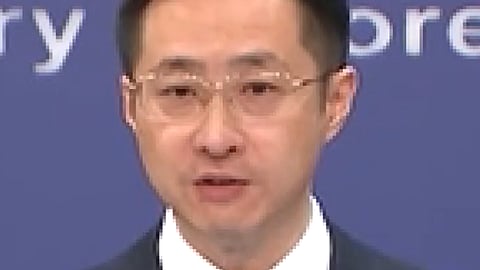

China lodged a formal complaint with the United Nations on Saturday accusing Japan of breaching international law following remarks by Japanese Prime Minister Sanae Takaichi earlier this month. The diplomatic exchange has intensified an already fraught relationship between the two major Asian powers as tensions surrounding Taiwan continue to grow.
China’s Permanent Representative to the UN, Fu Cong, sent a letter to Secretary-General António Guterres demanding that Japan retract Takaichi’s November 7 comments. In those remarks, Takaichi suggested that a Taiwan conflict involving battleships or the use of force could threaten Japan’s survival, strongly implying Tokyo might intervene if fighting erupted in the Taiwan Strait.
Fu warned that “if Japan dares to attempt an armed intervention in the cross-Strait situation, it would be an act of aggression,” and urged Japan to “deeply reflect upon its historical crimes” before escalating regional tensions. Beijing has repeatedly framed the Taiwan issue as an internal matter, pointing to global recognition of the One-China principle, with only a small number of states maintaining formal ties with Taipei.
Since Takaichi’s comments, exchanges between Tokyo and Beijing have escalated. Chinese Foreign Ministry spokesperson Mao Ning said earlier this week that the prime minister’s remarks had “fundamentally damaged the political foundation of China-Japan relations,” adding that there was “no longer a market for Japanese seafood,” a reference to China’s suspension of imports from Japan.
The dispute has also reignited debate within Japan. Taro Yamamoto, an opposition lawmaker and leader of the Reiwa Shinsengumi party, accused the Japanese government of acting as a “colony” of the United States and argued that Tokyo’s commitments regarding Taiwan reflected excessive dependence on Washington.
Concerns in Japan were already heightened after U.S. Defense Undersecretary Elbridge Colby visited Tokyo over the summer. His reported requests for clarity on Japan’s willingness to take a frontline role in a potential Taiwan conflict unsettled Japanese officials, who viewed the discussions as an attempt by Washington to draw regional allies into a possible confrontation with China.